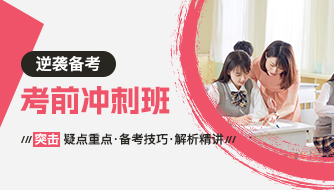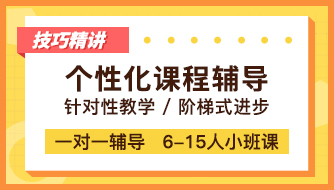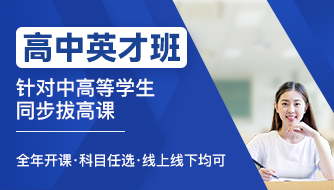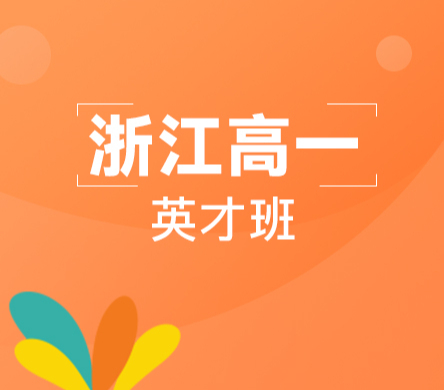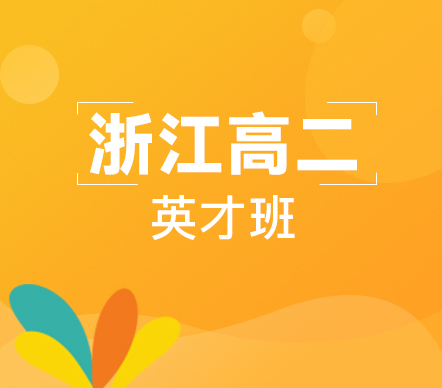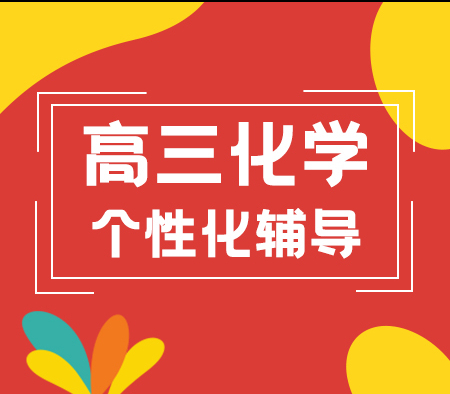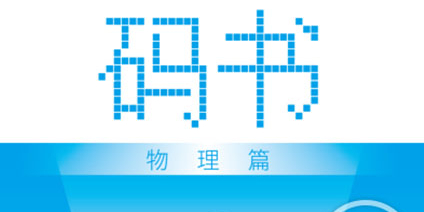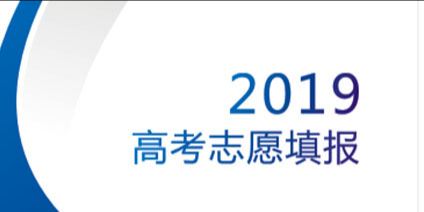2017年9月绍兴市高考科目诊断性考试英语试卷整理。九月份绍兴市进行了诊断性考试,本文,小编为大家做了相关整理,需要进行测试的同学请参考本文进行自测,做完试题的同学可以参照小编整理的参考答案进行核对:2017年9月绍兴市高考科目诊断性考试英语参考答案
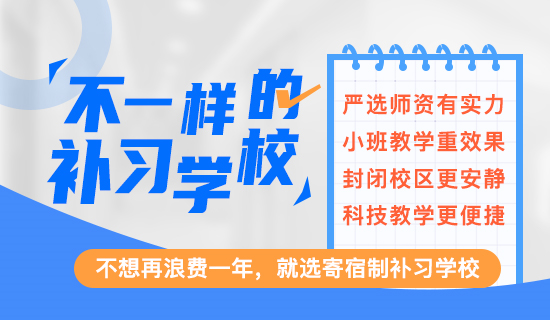
第I卷
注意事项:
1.答第I卷前,考生务必将自己的姓名、准考证号填写在答题卡上。
2.选出每小题答案后,用铅笔把答题卡上对应题目的答案标号涂黑。如需改动,用橡皮擦干净后,再选涂其他答案标号。不能答在本试卷上,否则无效。
第一部分:听力(共两节,30分)
做题时,先将答案标在试卷上。录音内容结束后,你将有两分钟的时间将试卷上的答案转涂到答题卡上。
第一节(共5小题;每小题1.5分,7.5分)
听下面5段对话。每段对话后有一个小题,从题中所给的A、B、C三个选项中选出较佳选项,并标在试卷的相应位置。听完每段对话后,你都有10秒钟的时间来回答有关小题和阅读下一小题。每段对话仅读一遍。
1. What does the woman ask the man to do?
A. Go to a film with her. B. Go to a company. C. Take a shower.
2. Who is the woman talking with?
A. A mailman. B. Her husband. C. A house painter.
3. Why won’t the woman order dessert?
A. She doesn ’t want to gain weight.
B. She thinks the dessert is too expensive.
C. She fears to dirty her jeans.
4. Where is the railway station?
A. To the west of the zoo.
B. Far from the zoo.
C. In the east of the city.
5. What is the woman doing?
A. Making complaints. B. Offering suggestions. C. Asking for help.
第二节(共15小题;每小题1.5分,22.5分)
听下面5段对话或独白。每段对话或独白后有几个小题,从题中所给的A、B、C三个 选项中选出较佳选项,并标在试卷的相应位置。听每段对话或独白前,你将有时间阅读各个 小题,每小题5秒钟;听完后,各小题将给出5秒钟的作答时间。每段对话或独白读两遍。
听第6段材料,回答第6、7题。
6. How does Martin feel?
A. Exhausted. B. Confused. C. Delighted.
7. Why is Martin so busy?
A. Because his boss doesn’t help him.
B. Because he has to handle everything alone.
C. Because he likes to run an office.
听第7段材料,回答第8、9题。
8. What does the woman think the weather will be like in the afternoon?
A. Foggy. B. Clear. C. Windy.
9. How will the man get the weather information?
A. He’ll listen to the radio.
B. He’ll consult a weather expert.
C. He’ll make a telephone call.
听第8段材料,回答第10至12题。
10. What is the woman going to do?
A. Invite the man to dinner.
B. Go to a Chinese opera.
C. Make a new dish.
11. When will they meet?
A. This Saturday. B. Next Sunday. C. Next Saturday.
12. Where do they plan to meet?
A. At the man,s home. B. At the woman’s house. C. At the school gate.
听第9段材料,回答第13至16题。
13. What do we know about the woman,s last picnic?
A. She stayed indoors for fear it would rain.
B. She had a good time with her friends.
C. She got caught in the sudden rain.
14. Who will drive the car on the way to the picnic?
A. Clifford. B. George. C. Lydia.
15. Why aren’t the speakers so sure about George’s arriving on time?
A. Because he often gets up late.
B. Because his car always breaks down.
C. Because he may be delayed during the rush hour.
16. What does the woman want to do after the picnic?
A. Take a walk around.
B. Stay home reading.
C. Do some relaxation exercises.
听第10段材料,回答第17至20题。
17. How long is the speaker staying in Finland?
A. For a fortnight. B. The whole winter. C. For three weeks.
18. Why is the speaker in Finland?
A. To visit a friend.
B. To experience social gatherings.
C. To attend a conference.
19. What was the speaker’s biggest problem while preparing for the trip?
A. Getting adapted to the weather.
B. Getting the right kind of clothes.
C. Getting used to social occasions.
20. Why could Julia help?
A. She’s from Finland.
B. She’s been to Northern Europe.
C. She’s the speaker’s best friend.
#p#副标题#e#
第二部分:阅读理解(共两节,35分)
第一节(共10小题;每小题2.5分,25分)
阅读下列短文,从每题所给的A、B、C和D四个选项中,选出较佳选项,并在答题卡上将该项涂黑。
A
At the age of twenty-two, I was employed by one of the largest commercial companies in the world, so my work mainly focused on advertising, working on production teams for hundreds of television commercials. I was fortunate to experience such an amazing career at such a young age, working all over the country with some of the most creative people in the world. I had it all.
And then one day a sudden thought came through me like a lightning bolt. “This is an industry that uses anorexic (厌食的)models to sell diet food to teenage girls.” My life changed.
And I quit.
A twelve-year career.
Right then.
That night I went home and was weak in my knees. I did not want to be part of the members making this problem; I wanted to be part of the people who had solution. But I had no idea what the solution looked like. My grandfather used to say, “Start with what you know, and more will be revealed”.
I knew the film, television and advertising industries and almost everything about them.
So I started going into junior high schools. I held up pictures of the models to show what they looked like at five o’clock in the morning, and then held up another picture showing what they looked like after three hours of professional make-up, thirty-five lighting technicians, and professional photographers who can make anyone look beautiful and sexy...Not to mention the efforts of post-production, where they airbrush nearly all of the imperfection parts right out of the picture. With digital technology, they can even stretch the models to make them appear taller and thinner.
I talked to young girls and said, “This is a multi-billion dollar industry that spends millions of dollars a year proving to you that there is something wrong with you so that they can sell you something to fix it. So I am here to tell you that your teeth are white enough... And your breath is fresh enough... and your thighs are thin enough. You are enough.”
You are enough, no matter what others say and what happens.
21. Why did the author quit working in the commercial company?
A. He was fed up with his work in advertising industry.
B. He realized his work was misleading teenage girls.
C. He found it hard to work with the team.
D. He decided to take up a career in education.
22. The author showed two sets of pictures of models to young girls to ▲.
A. show the magic power of make-up skills
B. stress the great efforts models made in their work
C. advocate developing digital technology
D. expose the real truth behind the amazing beauty of models
23. What message does the writer mainly want to pass to teenage girls?
A. You might as well change your life when an opportunity arises.
B. You can’t be too cautious when facing life choices.
C. It is who you are rather than what you look like that counts.
D. It is worthwhile to experience something interesting and creative.
B
Intelligent people are more likely to trust others, while those who score lower on measures of intelligence are less likely to do so. Oxford University researchers based their finding on an analysis of the ‘General Social Survey'
The authors say one explanation could be that more intelligent individuals are better at judging characters and may spend more time building relationships with people they can trust. Another reason could be that smarter people are better at weighing up situations and assessing whether or not the other person will hold up his or her end of a bargain.
“Intelligence is shown to be linked with trusting others.” said the study’s lead author, Noah Carl of Oxford University, “This finding supports what other researchers have argued, namely that being a good judge of character is a distinct part of human intelligence.”
In addition, the study shows that individuals who are more trusting are also happier with their lives and had higher levels of physical health. The Oxford researchers found, however, that the links between trust and health, and between trust and happiness, are not explained by intelligence. The findings confirmed that trust is a valuable resource for an individual, and is not simply a measure of intelligence.
The authors say the research is significant because the study of social trust could have far-reaching implications in public welfare, as social trust contributes to the success of important social institutions, such as welfare systems and financial markets.
According to Organization for Economic Co-operation and Development, trust is in increasingly short supply in current generation. This decline threatens world leaders’ ability to handle some of today’s key challenges like global warming, and the political system. There are good reasons to think that governments should try to develop more trust in society.
Distrust usually causes friction in personal relationships, careers and politics among others, says Stephen Covey. Although majority of people say that trust can never be restored once it’s broken, Stephen feels it can be brought back. “It’s not easy, it takes time, but you do it through your behavior, not just things you say.”
24. It can be concluded from the analysis of the General Social Survey that ▲.
A. intelligent people tend to show more trust in others
B. judgment of characters determines the level of intelligence
C. intelligence accounts for the connection between trust and health
D. intelligent individuals spend less time on interpersonal relationship
25. What does the underlined phrase in paragraph 2 probably mean?
A. Make the best of a situation.
B. Stick to one’s promise as agreed.
C. Figure out the true value of a bargain.
D. Make an assessment of a deal.
26. According to the research, higher level of social trust is ▲.
A. a decisive basis for stable political system
B. a basic step to deal with global warming
C. a contributing factor to successful public institutions
D. a complete solution to interpersonal conflicts
27. When it comes to rebuilding trust, Stephen is most likely to agree that ▲.
A. actions always speak louder than words
B. behavior is a mirror in which everyone shows his image
C. behavior is largely determined by mind
D. action is the proper fruit of knowledge
#p#副标题#e#
C
The study led by Myrskyla, director of the Max Planck Institute in Germany was the first to analyze the accumulative effect of several key health behaviors on disability-free and total life expectancy. Previous studies have looked at single health behaviors. Myrskyla and colleagues instead examined several behaviors simultaneously (同时),which allowed them to determine how long and healthy the lives of people who had avoided most of the well-known individual behavioral risk factors were.
The researchers noted that each of the three unhealthy behaviors 一 obesity, smoking, and unhealthy consumption of alcohol — was linked to a reduction in life expectancy and to an earlier occurrence of disabilities. However, smoking was found to be associated with an early death but not with an increase in the number of years with disability, while obesity led to a long period of time with disability. Excessive alcohol consumption was found to cause both decreased lifespan (寿命) and a reduced number of healthy years. However, the absence of all of these risky healthy behaviors was found to be associated with the greatest number of healthy years.
The most striking finding was the discovery of a large difference in average lifespan between the groups who were the most and the least at risk. Men who were not overweight, had never smoked,and drank properly were found to live an average of 11 years longer than men who were overweight, had smoked, and drank excessively. For women, the gap between these two groups was found to be even greater,at 12 years.
“Our results show how important it is to focus on prevention. Those who avoid risky health behaviors are achieving very long and healthy lives,” said Myrskyla. It’s not without reason that we are told repeatedly to switch to a healthy lifestyle, which can prevent you from various illnesses as well as keep you young and active. “Improvements in medical technology are often thought to be the gatekeeper to healthier, longer life. But we showed that a healthy lifestyle, is enough to enable individuals to enjoy a very long and healthy life,” said Myrskyla. “A healthy lifestyle is enough to get the benefits. Avoiding those behaviors is not an unrealistic goal.”
28. Myrskylastudy is different from previous ones in that ▲.
A. it concentrates on how individual behaviors affect our health
B. it is conducted by a team of professional researchers
C. it analyzes the combined effects of some unhealthy behaviors
D. it assesses the risk of unhealthy behaviors on decreased lifespan
29. It can be learned from paragraphs 2-3 that ▲.
A. obesity is closely connected with an early death
B. smoking leads to a long period of time with disability
C. overdrinking contributes to the reduction in lifespan
D. no striking differences exist between the two groups of women
30. What may be the best title for the text?
A. Health Improvement: Adoption of a Balanced Diet
B. Health Care: Not a Privilege but a Right
C. Absence of Smoking: Simplest Way to Keep Healthy
D. Lifestyle Changes: Extra Years in Good Health
第二节(共5小题;每小题2分,10分)
根据短文内容,从短文后的选项中选出能填入空白处的较佳选项。选项中有两项为多余选项。
How to keep a journal
Keeping a journal can be a way of giving your feelings an outlet like no other. 31 But it can be helpful to read suggestions for making the most of your journal, as well as some ideas about getting one started.
Find a journal medium that’s perfect for you. 32 Both methods have advantages and drawbacks, so you’ll need to weigh up what works best for you. For example, a paper based journal can be taken anywhere, never needs electricity. However, typing can be faster and easier in the electronic format.
Decide what kind of journal you'd like to keep. You could simply use your journal to write down all the thoughts that come to you at any particular time, randomly, or you could make your journal more focused on a specific theme to draw out something that you’re trying to develop more of in your life. 33
Find sources of inspiration. It’s often easiest to start with your current feelings. 34 There are no rules at all about journal writing and you may find that your starting points vary every time you begin a new entry. Sometimes it is easier to begin with a narrative about something that happened to you during the day. Writing down the facts and events can open up a whole stream of consciousness as you’re writing.
35 Think about what things have become clearer to you from one journal entry to the next, and think about what hopes and dreams once written in your journal have now turned into reality. Use your journal to assess your life’s journey.
A. Write down your feelings on paper and see where this takes you next.
B. Reflect over what you’ve written now and then.
C. Keep in mind that a journal is not about using a fancy book.
D. Decide how you want to keep your journal, either on paper or in electronic form.
E. Journal writing is a personal journey, determined wholly by your own thoughts.
F. It,s fun to glue in little things of your life, like pictures you took of a breathtaking sunset.
G. And there is nothing saying that you can’t keep both a random and a specific journal at the same time!
#p#副标题#e#
第三部分:语言运用(共两节,45分) 第一节:完形填空(共20、小题;每小题1.5分,30分)
阅读下面短文,从短文后各题所给的A、B、C和D四个选项中,选出可以填入空白处 的较佳选项,并在答题卡上将该项涂黑。
When we seem to have finally obtained things we’ve worked hard for, most of us tend to think that we can relax and enjoy life. 36 , life has some rude awakenings for us.
This was the 37 for Stevie. He worked hard and years later, he was able to buy a really nice home on a cliff 38 the ocean. It seemed that all his work 39 and that he had finally realized his dream.
Well, as life would have it, along came the events over which he had no 40 . Above all, the cliff started to erode (风化)badly from the 41 winds and rains over the years. What was once a one-hundred-foot backyard was rapidly 42 week by week, and to make matters even 43 . from www.2abc8.com
he became badly ill to the point 44 he had to take lots of time off from work.
Then, the most tragic things happened. The backyard totally disappeared and what was 45 was the back of the house sitting dangerously on the edge of the cliff. What was even more destructive was that he had no house insurance 46 the family could not get any from insurance companies who knew of the 47 . No insurance, and so sick that he couldn’t work — now what?
A person who thought he had finally reached the 48 and now only to find almost everything had disappeared through no 49 of his own.
The good news was that he wasn’t done — friends, neighbors and even those who didn’t know him 50 responded to fund-raisers to help them start over.
Life has a way of 51 and kicking us from behind and even kicking again when we are really down. But life also gives us a way 52 if we don’t give up. There is kindness and comfort 53 an opportunity to start again if we have a 54 to move forward. Keep focused on new life and move beyond all those things that may 55 us to the present.
36. A. Evidently B. Unfortunately C. Consequently D. Actually
37. A. case B. point C. sense D. occasion
38. A. approaching B. separating C. overlooking D. surrounding
39. A. took off B. paid off C. dropped off D. broke off
40. A. doubt B. advantage C. control D. authority
41. A. constant B. regular C. temporary D. steady
42. A. expanding B. shrinking C. declining D. growing
43. A. stranger B. simpler C. better D. worse
44. A. what B. where C. when D. which
45. A. left B. constructed C. preserved D. withdrawn
46. A. although B. but C. and D. because
47. A. profits B. risks C. pressure D. intention
48. A. dreams B. decisions C. agreement D. conclusion
49. A. expectation B. duty C. purpose D. fault
50. A. extremely B. casually C. personally D. eventually
51. A. showing up B. turning around C. standing out D. getting through
52. A. out B. off C. over D. across
53. A. in terms of B. as well as C. instead of D. regardless of
54. A. talent B. chance C. heart D. desire
55. A. limit B. connect C. lead D. drive
第II卷
第三部分:语言运用(共两节,45分) 第二节:(10个小题;每小题1.5分,15分)
阅读下面材料,在空白处填入适当的内容(1个单词)或括号内单词的正确形式。
It used to be that making a person happy meant I had a great day. During high school I put 56 (I) into situations where I would have to interact with people for most of the day. I held positions in Associated Student Body and Key Club, 57 (stay) after school just to dick around with friends and played games with friends. My personality at this time could 58 (describe) as friendly and easily outgoing. I came to CMU and nothing would stop me 59 my future goals. But by the end of freshman year I was unsatisfied with my 60 (perform). They didn’t meet my own expectations. I couldn’t get perfect grades and meanwhile live a social life that I used to know of, 61 I chose to sacrifice the majority of social activities that I used to love doing. I chose to do things alone or with those rare friends where everything is just natural around them. Now I am a quiet person, someone 62 prefers being alone to social activities. Silence to me is 63 (true) golden. But never misunderstand this as me being an awkward computer nerd you see on televisions who can’t hold 64 normal conversation. Instead, think of it as a person that simply needs to re-energize after 65 (spend) the day in a crowd.
第四部分:写作(共两节,40分)
第一节:应用文写作(15分)
一批外国交流生将来你校学习一周。为帮助他们尽快适应学校生活,校学生会将举办 一个欢迎晚会。假设你是李华,请代表学生会用英语在晚会上简短致辞,内容包括:
1.表示热烈欢迎;
2.学习课程:安排以了解中国文化为目的的学习课程;
3.实践活动:学习一些中国传统烹饪技巧并组织一次使用筷子比赛。
注意:
1.词数80左右;
2.可以适当增加细节,以使行文连贯。
第二节:概要写作(25分)
阅读下面短文,根据其内容写一篇60词左右的内容概要。
China’s bike-sharing has exploded from nothing about a year ago into a transport phenomenon in major cities. Just by scanning the QR code (二维码)that appears behind the seat, one can unlock a shared bicycle. Once the service has finished, the user blocks the bike and the total is charged to his mobile account. The process lasts less than 30 seconds and costs no more than one penny. By the way, there are still no fixed places to find or leave a bike, although areas such as university campus, and metro or bus station are preferred.
Many young people believe shared bicycles have many advantages. They are not expensive to rent, they do not have to be protected from thieves, and there is no need to repair them. You just have to change them for another one. They are also environment friendly and lower the use of cars, which also helps to relieve traffic. In fact, it is considered an awesome combination of technology and tradition.
Since they appeared, shared bicycles have raised a lot of dust. There is no doubt of the benefits but the disadvantages cannot be ignored. Many problems related to shared bicycles have emerged. It is due to bad behavior from some users who always want to seize the bicycles, but also because of the mess that has been created since one can leave the bicycle anywhere, which is against public urban order management. There are so many poorly parked bikes that sometimes they end up blocking streets.
In Xi Luoyuan, Beijing, the “Civilized Use of Bicycles” campaign has been launched. In addition to having 40 officially permitted stops, there are also clear signals to lead users to these stops. A team of supervisors keep order in the area. This is the first area that is part of an official system to manage bicycles. The purpose of this campaign is to solve the mess that the popularity of shared bicycles is causing in Beijing, both with the participation of companies and the users. If the pilot plan works out well in Xi Luoyuan, it will be extended to all of the cities in China.
- 热门课程
- 热门资讯
- 热门资料
- 热门福利
-
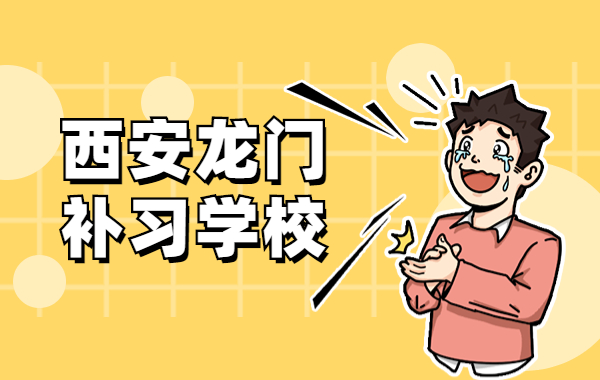 龙门的中考冲刺班做的怎么样?是怎么收费的?随着中考的临近,越来越多的家长开始为冲刺阶段的学习做准备。面对中考这场关键考试,许多家长希望通过额外的辅导帮助孩子提高成绩,在众多的补习机构中,龙门因其专业性吸引了大量的学生和家长。不少家长关心其效果如何,收费情况又怎样。今天我们就带大家详细了解一下。 一、龙门的中考冲刺班效果怎么样? 龙门
龙门的中考冲刺班做的怎么样?是怎么收费的?随着中考的临近,越来越多的家长开始为冲刺阶段的学习做准备。面对中考这场关键考试,许多家长希望通过额外的辅导帮助孩子提高成绩,在众多的补习机构中,龙门因其专业性吸引了大量的学生和家长。不少家长关心其效果如何,收费情况又怎样。今天我们就带大家详细了解一下。 一、龙门的中考冲刺班效果怎么样? 龙门 -
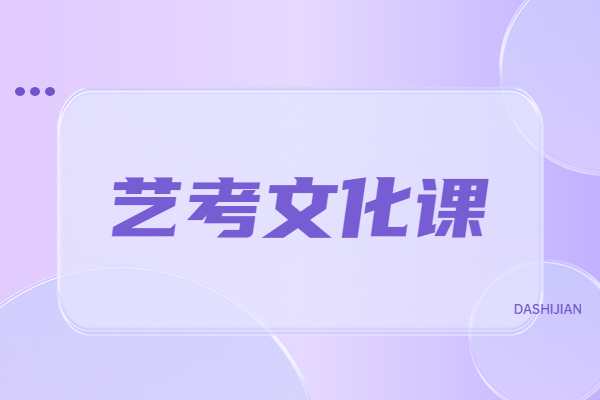 西安英泰有艺考文化课培训吗?往年提分情况怎么样?每年高考季,艺考专业课是一大难点,但文化课同样至关重要。尤其是在近几年,高校对于艺考生文化课的要求越来越严格,许多艺考生因此需要专门的文化课辅导。而对于在西安的艺考生来说,英泰补习学校无疑是一个值得信赖的选择。那么,西安英泰补习学校的艺考文化课培训怎么样?一起来看看。 一、英泰有艺考文化课培训
西安英泰有艺考文化课培训吗?往年提分情况怎么样?每年高考季,艺考专业课是一大难点,但文化课同样至关重要。尤其是在近几年,高校对于艺考生文化课的要求越来越严格,许多艺考生因此需要专门的文化课辅导。而对于在西安的艺考生来说,英泰补习学校无疑是一个值得信赖的选择。那么,西安英泰补习学校的艺考文化课培训怎么样?一起来看看。 一、英泰有艺考文化课培训 -
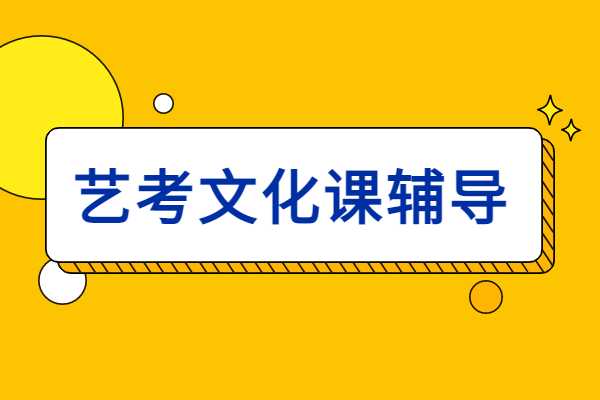 艺考完文化课有必要去集训吗?哪家艺考文化课培训班好?每年,随着艺考的结束,紧接着另一个重大挑战摆在眼前,那就是文化课的复习备考。对于很多艺术生来说,文化课并非他们的强项,而文化课成绩在最终录取中依然占有非常重要的比例。因此,如何在艺考结束后短时间内提升文化课成绩,成为了大家关注的焦点。那么艺考完文化课是否有必要去集训? 一、艺考完文化课有必要去
艺考完文化课有必要去集训吗?哪家艺考文化课培训班好?每年,随着艺考的结束,紧接着另一个重大挑战摆在眼前,那就是文化课的复习备考。对于很多艺术生来说,文化课并非他们的强项,而文化课成绩在最终录取中依然占有非常重要的比例。因此,如何在艺考结束后短时间内提升文化课成绩,成为了大家关注的焦点。那么艺考完文化课是否有必要去集训? 一、艺考完文化课有必要去 -
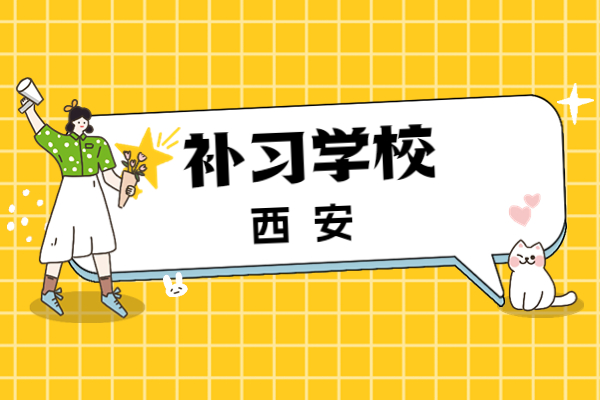 西安补习学校排名前5有哪些?来看看最新排行榜现在如果孩子在学校学习不自律,跟不上,家长们就越来越重视补习学校的选择,特别是在西安,找到一所合适的补习学校显得尤为重要。无论是为了高考冲刺、提高成绩,还是为了培养学习习惯,好的补习学校都能起到事半功倍的作用。那么,西安的补习学校有哪些值得信赖呢?今天,我们就来聊一聊西安排名前5的补习学校!
西安补习学校排名前5有哪些?来看看最新排行榜现在如果孩子在学校学习不自律,跟不上,家长们就越来越重视补习学校的选择,特别是在西安,找到一所合适的补习学校显得尤为重要。无论是为了高考冲刺、提高成绩,还是为了培养学习习惯,好的补习学校都能起到事半功倍的作用。那么,西安的补习学校有哪些值得信赖呢?今天,我们就来聊一聊西安排名前5的补习学校!
-
 2022高考英语基础知识点!西安伊顿老师带你了解!2022高考英语基础知识点!西安伊顿老师带你了解!高中的英语是一个需要长期积累以及记忆的科目,在高考中只有针对这些知识进行一定的了解和积累,才可以在考试中取得好成绩。针对这种情况,小编请到了西安伊顿老师来给大家总结归纳一下关于高考英语基础知识点的记忆内容,希望对大家有所帮助。对于英语还是需要靠日
2022高考英语基础知识点!西安伊顿老师带你了解!2022高考英语基础知识点!西安伊顿老师带你了解!高中的英语是一个需要长期积累以及记忆的科目,在高考中只有针对这些知识进行一定的了解和积累,才可以在考试中取得好成绩。针对这种情况,小编请到了西安伊顿老师来给大家总结归纳一下关于高考英语基础知识点的记忆内容,希望对大家有所帮助。对于英语还是需要靠日 -
 关于“呐喊与行动那个更重要”的辩论稿写作指导!一直以来,辩论稿的写作都是大家司空见惯的,但是也是很多同学容易忽视的。现在的语文作文考察的范围和广度越来越大,涉及到的文体也越来越多,因此大家在备考语文作文的时候,还是要增加自己的知识面,增加自己的见识。辩论稿大家见得比较多,但是在语言文字上以及结构上的学习,还是非常值得探究的,下面小编给大家分享了一则辩论稿,大家可以练习一下。
关于“呐喊与行动那个更重要”的辩论稿写作指导!一直以来,辩论稿的写作都是大家司空见惯的,但是也是很多同学容易忽视的。现在的语文作文考察的范围和广度越来越大,涉及到的文体也越来越多,因此大家在备考语文作文的时候,还是要增加自己的知识面,增加自己的见识。辩论稿大家见得比较多,但是在语言文字上以及结构上的学习,还是非常值得探究的,下面小编给大家分享了一则辩论稿,大家可以练习一下。 -
 “直播带货”有关的作文写作指导!立意和审题指导!高中的作文写作更多的是来自于社会现象的思考,或者生活的思考,所以高中的同学在写作文的时候可以从生活细节入手,寻找素材,因为任何题目都是取之于生活,进而引发的一系列的思考行为。本次伊顿教育小编给大家分享的这篇作文也是一个社会现象的评述,材料内容是关于“直播带货”,这个大家都是不陌生的,而且有的同学也是参与者,所以对于此也是非常的熟悉的。下面我们可以来看看这篇作文写作的指导。
“直播带货”有关的作文写作指导!立意和审题指导!高中的作文写作更多的是来自于社会现象的思考,或者生活的思考,所以高中的同学在写作文的时候可以从生活细节入手,寻找素材,因为任何题目都是取之于生活,进而引发的一系列的思考行为。本次伊顿教育小编给大家分享的这篇作文也是一个社会现象的评述,材料内容是关于“直播带货”,这个大家都是不陌生的,而且有的同学也是参与者,所以对于此也是非常的熟悉的。下面我们可以来看看这篇作文写作的指导。 -
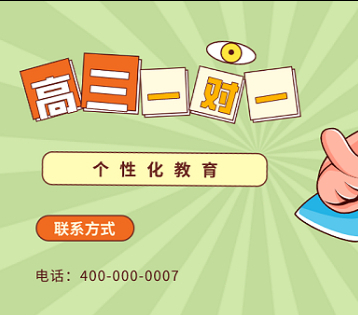 2021年9月山水联盟高三开学联考数学试卷及答案(原版)!2021年9月山水联盟高三开学联考已经结束,伊顿教育小编给大家整理了本次联考的数学试卷以及答案,各位相关的小伙伴可以参考一下。对于高三的学习,小编建议大家在每一次的考试之后,都能够仔细的分析一下自己的失分点,对于自己没有掌握的知识点可以尽早的掌握。
2021年9月山水联盟高三开学联考数学试卷及答案(原版)!2021年9月山水联盟高三开学联考已经结束,伊顿教育小编给大家整理了本次联考的数学试卷以及答案,各位相关的小伙伴可以参考一下。对于高三的学习,小编建议大家在每一次的考试之后,都能够仔细的分析一下自己的失分点,对于自己没有掌握的知识点可以尽早的掌握。






